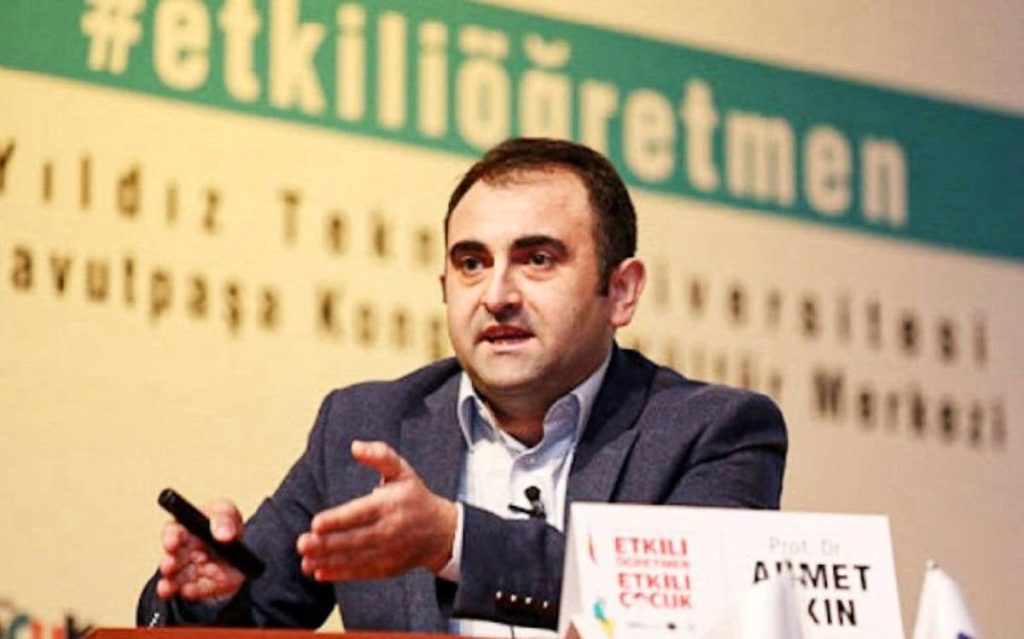Prof. Ahmet Akın, a faculty member at İstanbul Medeniyet University’s Faculty of Educational Sciences, has been dismissed from his position amid serious allegations of harassment and abuse of minors. Following a media report that brought these claims to light, the university announced an internal investigation and confirmed Akın’s removal from his role as head of the Psychological Counseling and Guidance Department. This response reflects the institution’s commitment to a thorough and transparent process as it navigates these disturbing allegations.
| Article Subheadings |
|---|
| 1) The Official Response from the University |
| 2) Emergence of the Allegations |
| 3) Details of the Allegations |
| 4) Akın’s Defense and Claims |
| 5) Broader Implications and Community Reactions |
The Official Response from the University
In light of the serious allegations against Prof. Ahmet Akın, İstanbul Medeniyet University has taken decisive action. An official statement was released, highlighting that an investigation has been initiated to thoroughly examine the claims made against Akın. This response underscores the university’s commitment to adhering to ethical standards and ensuring the safety and well-being of its students. The statement emphasized that the investigation will be conducted in a manner that is fair, transparent, and objective, ensuring that all parties involved are treated justly. Furthermore, in an effort to address the situation promptly, Akın’s academic profile has been removed from the university’s official website. To ensure continuity in leadership within the Psychological Counseling and Guidance Department, Assoc. Prof. Dr. Mehmet Boyacı has been appointed as the new head.
Emergence of the Allegations
The controversy surrounding Prof. Ahmet Akın began to unfold on social media, where serious allegations were made against him by an anonymous account. The allegations suggested that Akın conducted what has been described as “conversion therapy,” targeting vulnerable populations, particularly homosexual and transgender youth. This form of therapy has garnered significant criticism and condemnation as it often involves unethical practices that aim to change an individual’s sexual orientation or gender identity. In this case, the claims detailed a disturbing pattern of both physical and emotional abuse implicated within these alleged therapy sessions.
Details of the Allegations
The allegations made against Akın became more personal when a victim shared their experience publicly. This individual stated that they were sent to Akın’s therapy sessions at the young age of 16, following familial pressures related to their identity as an LGBTI+ person. During one alleged session, the individual recounted experiencing harassment and inappropriate behavior from Akın in a professional setting, claiming that the encounter left them traumatized and affected their mental health. These accounts have not only shocked the local community but have also sparked wider discussions about the treatment of LGBTI+ individuals in therapeutic settings.
Akın’s Defense and Claims
In response to the allegations, Prof. Ahmet Akın defended his actions and the nature of his work. He indicated that he does not categorize his methods as therapy, asserting that they are designed to redirect what he perceives as psychological issues among youth. Akın’s statements included a denial of the abuse claims, where he stated, “Thank God, I have never had any kind of physical, sexual, or inappropriate interaction with any of them.” He further insinuated that these allegations might be part of a larger conspiracy, hinting at influences from “Zionist lobbies” aimed at discrediting him. Additionally, he announced intentions to take legal action against those making these claims, which serves to further complicate the situation. His defense has polarized opinions, with many viewing it as an evasive response to serious concerns.
Broader Implications and Community Reactions
The allegations against Prof. Ahmet Akın have ignited a robust conversation within the community regarding the treatment of LGBTI+ individuals and the ethics surrounding therapy practices in educational institutions. Advocates for LGBTI+ rights have expressed alarm over the claims, emphasizing the potential ramifications that such unethical practices can have on vulnerable youth. Discussions have emerged in various forums, calling for more rigorous oversight during therapy sessions and greater accountability for practitioners. As investigations continue, many are looking toward the university’s handling of both the issue and its implications for policies related to harassment and abuse within educational institutions.
| No. | Key Points |
|---|---|
| 1 | Prof. Ahmet Akın has been dismissed from his position following serious allegations of harassment and abuse. |
| 2 | The university has initiated an investigation into the claims against Akın. |
| 3 | Anonymous allegations on social media claimed Akın conducted abusive “conversion therapy” sessions. |
| 4 | Witnesses have come forward alleging inappropriate behavior during therapy sessions. |
| 5 | Akın has denied the allegations, suggesting they are part of a conspiracy. |
Summary
The dismissal of Prof. Ahmet Akın from İstanbul Medeniyet University highlights the increasing awareness and response to allegations of abuse and unethical practices within educational and therapeutic environments. The university’s commitment to a transparent investigation may serve as a critical step in addressing not only the specific accusations against Akın but also the broader issues of accountability and protection for vulnerable populations. As the investigation unfolds, the academic community and society at large remain vigilant in their response to such serious allegations.
Frequently Asked Questions
Question: What led to the dismissal of Prof. Akın?
Prof. Akın was dismissed following serious allegations of harassment and abusive practices during therapy sessions aimed at LGBTI+ youth.
Question: What is “conversion therapy”?
“Conversion therapy” is a range of practices aimed at changing an individual’s sexual orientation or gender identity, often seen as unethical and harmful.
Question: How has the community reacted to these allegations?
The community has expressed outrage over the allegations, leading to discussions about the need for stricter regulations regarding therapy practices and better protections for vulnerable individuals.


